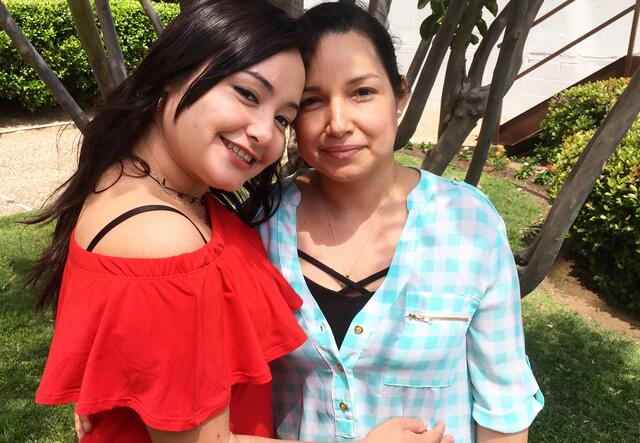The IRC recently helped reunite a mother and daughter from El Salvador who were granted legal status in the United States through the Temporary Protected Status (TPS) and Central American Minors (CAM) programs. In 1999, Maria* left El Salvador with her daughter’s father to journey to the United States. The most difficult part of this journey? Leaving behind their 2-year-old daughter, Alejandra*, with Maria’s mother and sister who sought to protect the toddler from the dangerous journey. On April 12th, Alejandra finally arrived in Texas, 18 years after her mother first said goodbye in El Salvador.
While leaving behind a child may seem unimaginable, it is vital to understand the environment of El Salvador when Maria left in 1999. In 1992, the country’s government signed a peace accord with left-wing guerrillas, but this was only reached after 12 years of civil war and a death toll of 75,000. Even 25 years after the accord, the country is still the most violent country in the Americas, with a murder rate of 80 per 100,000 people—more than 15 times that of the United States. As described in an article by the Economist, gang violence remains a major concern. Just this past September, one city was forced to create a camp on a basketball court for dozens of families after gangs ordered them to vacate their homes. This became El Salvador’s first instance of internally displaced people since their civil war.
The CAM program was established in 2014 by the U.S. Department of State and U.S Department of Homeland Security to establish “an in-country refugee/parole program in El Salvador, Guatemala, and Honduras to provide a safe, legal, and orderly alternative to the dangerous journey that some children [were] undertaking to the United States.” Operating through the U.S. Refugee Admissions Program, CAM allows unmarried children who are under the age of 21 to be reunited with parents who are legally residing in the United States. In 2016, the program was expanded to allow additional family members and guardians to accompany the qualifying minor to the United States.

Maria and Alejandra’s method of communication developed alongside advancements in technology over the years. The pair relied primarily on phone calls, but also kept in touch via letters in earlier years. In recent years, Facebook messenger became their main method of communication. After Alejandra’s grandmother passed away three years ago, her aunt continued to raise her. Under her aunt’s guidance, Alejandra graduated high school in their hometown, and went on to complete one year of radiology school at in San Salvador.
Now in the United States, Alejandra is sad about losing a year of her university studies, but anxiously anticipates the new opportunities that await her. After learning English, she hopes to pursue a degree in nursing. As for Maria, the reunion with her daughter has been bittersweet. Her heart is happy to have Alejandra here in the United States with her two younger sons, but she regrets all the years they missed together. Maria’s next goal as a mother is to get her two sons, ages 12 and 15, successfully through high school.
Looking forward, the family hopes to bring Alejandra’s second “mother” to the United States. Her aunt who raised her for 18 years may qualify for the recent expansion to the CAM program, so Maria and Alejandra are working to research this option through the IRC. The IRC continues to work with both Maria and Alejandra to ensure Alejandra has a successful beginning in Dallas, and both attended a recent Job Readiness Training Class. Maria is happy to have all her children safe in one city, and Alejandra is excited to celebrate her 21st birthday later this year alongside her mother.
*Names have been changed to protect the individuals in this story
Story written by: Casey Sublett